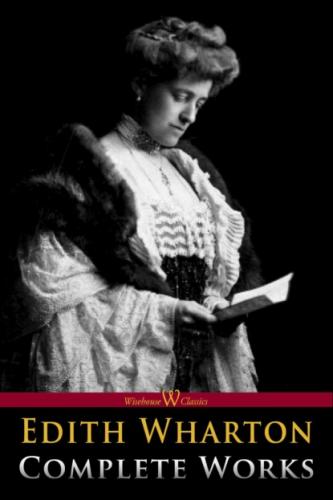—————
IX.
Madeline Graham.
“The lady, in truth, was young, fair & gentle.”
Robert Lytton: Lucile.
Since his parting with Georgie Rivers, & the disappointment of his love, Guy Hastings had been, as Jack expressed it: “going rapidly to the dogs.” Now there are many modes of travelling on this road; the melodramatic one in which the dark-browed hero takes to murder, elopement, & sedition; the commonplace one in which drinking, gambling & duelling are prominent features; the precipitate one of suicide; & finally that one which Guy himself had chosen. He did not kill himself, as we have seen, nor did he run away with anyone, or fight a duel, or drink hard; but he seemed to grow careless of life, money & health, & to lose whatever faith & tenderness he had had in a sort of undefined skepticism. Perhaps this least perceptible is yet the most dangerous way of “going to the dogs”; it is like the noiseless dripping of lime-water which hardens the softest substance into stone. Guy’s life was no longer sweet to him. He felt himself sliding away from all ties of kindliness & affection, & did not care to stay his course; he thought his heart was withered & that nothing could revive it. Perhaps the first thing that came near touching it, & shewed that it had any vitality left, was Teresina. Not that he loved her; Jack need not have been anxious on that score. But there is a dangerous sort of interest & pity which may too easily be mistaken for love, & which Guy felt towards the little contadina. She appealed to the heart he thought dead by her shyness & her soft, leaning temper; & to his eye by the rich, languid beauty which could in no way bring to his mind another kind of prettiness with which his bitterest memories were associated. He painted the girl over & over again, & interested himself in her; but whatever danger might have been in store was warded off by a confession that Teresina made one April morning, with blushes & tears, to the Signore. She was in love, poor little soul, with Matteo, old Giovanni the blacksmith’s son; but Matteo was poor, & Teresina’s parents had destined her to be the wife of the rich carpenter, Pietro. So she told Guy; & her story so completely enlisted his sympathy that he not only went to see the Padre & bribed him largely to let Teresina marry where her heart was, but wrote to Mr. Graham, who had bought one of his pictures, & got a nice little sum from the generous merchant. This was some time after Jack’s departure, & a week after Guy left Rome for his Summer wanderings in Switzerland, followed by the gratitude of two honest peasant hearts.
The soft July day, a little more than two months after this, he was walking along the old covered bridge at Interlaken, when the sound of voices reached him from the other end, & a moment later a stout, fair lady, who seemed to move in an English atmosphere, so clear was her nationality, appeared with a girl by her side. The girl was tall & élancée, & bore an unmistakeable resemblance to the elder lady; & a few yards behind them Guy espied the florid, whiskered countenance of Mr. Graham. The merchant was the first to speak his recognition, in his usual loud tones, while the ladies fell back a little, & the girl began to sketch with her parasol. “Mr. Hastings here!” exclaimed Mr. Graham. “This is a surprise! Been here long, eh? Mrs. Graham, my dear, this is Mr. Hastings, the gentleman who painted that pretty little face you make so much of; this is my daughter, Mr. Hastings.” These introductions over, Guy perforce turned his steps & recrossed the bridge with the family party. He talked to Mrs. Graham, while the girl walked behind with her father; but his quick artist’s eye had taken in a glance the impression that she was thin, but well-built, & exquisitely blonde, with large blue eyes, almost infantine in their innocent sweetness. She spoke very little, & seemed retiring & unaffected; & he noticed that her voice was low & musical. As for Mrs. Graham, she may best be described as being one of a large class. She was comely & simple-mannered, intensely proud of her husband & her daughter, & satisfied with life altogether; one of those dear, commonplace souls, without wit or style, but with an abundance of motherliness that might cover a multitude of fashionable defects. Guy was universally polite to women, but Mrs. Graham’s bland twaddle about hôtels, scenery & railway carriages (the British matron’s usual fund of conversation when taking a relaxation from housekeeping on the continent) was not very absorbing, & his eyes wandered continually towards her daughter—Madeline, her father had called her. He wondered why the name suited her soft, blonde beauty so well; he wondered if she were as refined as she looked; &
